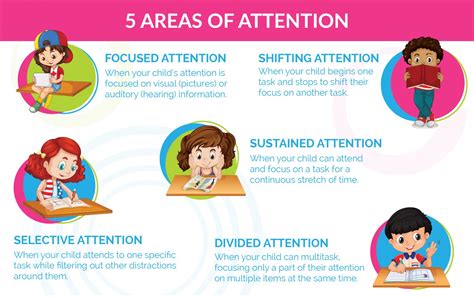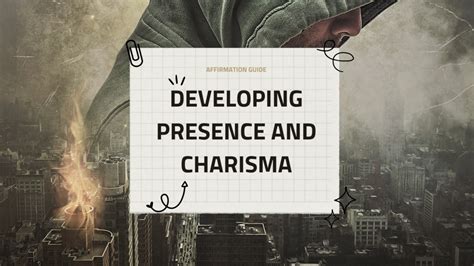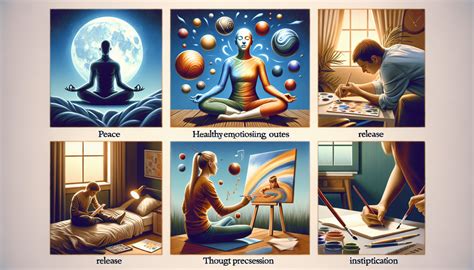Have you ever found yourself daydreaming about a life where all eyes are on you? Where every word you speak ignites a spark and every action you take mesmerizes the crowd? It's a captivating vision that we all harbor deep within, the desire to bask in the radiance of being the center of attention.
In a world where individuality struggles to shine through, embracing your inner spotlight can be a doorway to self-discovery and personal growth. It's about harnessing your unique brilliance, uncovering the facets that make you stand out from the rest, and embracing the sheer power that lies within.
The journey towards becoming the captivating force you envision starts with understanding and appreciating yourself. It's about recognizing your strengths and using them as instruments to captivate those around you. You possess an unparalleled ability to command attention, cultivate connection, and leave an indelible mark in the hearts and minds of those who cross your path.
Embracing your spotlight is not about seeking validation or fame, but rather about owning your sense of self and the influence you wield. It's the freedom to express yourself confidently, unapologetically, and fearlessly. When you fully embrace the spotlight, you tap into your true potential and unleash a force that can inspire, motivate, and transform not only your own life but also the lives of others.
So, are you ready to embark on a journey of self-discovery and fulfill your long-standing fantasy of captivating the world around you? Step into your spotlight, let your brilliance shine through, and watch as you leave an unforgettable impression on the stage of life.
Understanding Your Need for Attention

In this section, we will explore the underlying reasons behind your strong desire to be at the center of everyone's focus. We will delve into the psychology of attention-seeking behavior and shed light on why some individuals crave attention more than others.
Humans are inherently social beings, and seeking attention is a fundamental aspect of our nature. It stems from a deep-rooted need to connect with others, to be seen, heard, and recognized. The desire for attention can be driven by various factors, such as a longing for validation, a craving for significance, or a fear of being overlooked.
Moreover, attention-seeking behavior is often an expression of one's personality and unique traits. Some individuals naturally possess qualities that attract attention, such as charisma, confidence, or a captivating presence. This inclination towards seeking the limelight can also be influenced by personal experiences, such as childhood dynamics, cultural upbringing, or past successes in gaining attention.
It is essential to understand that there is a spectrum when it comes to seeking attention. Some individuals may have a healthy balance of enjoying attention while maintaining a sense of self-worth and independence. However, others may exhibit more extreme behavior, constantly relying on external validation and becoming uncomfortable when not in the spotlight.
By understanding the underlying motivations behind your desire for attention, you can gain valuable insights into yourself and explore alternative ways to fulfill these needs. It is crucial to find a healthy balance between gaining attention and fostering genuine connections, as well as cultivating self-acceptance and validation from within.
Remember, seeking attention is a natural aspect of human behavior, and by delving deeper into your desires, you can embark on a journey of self-discovery and personal growth.
Discovering Your Unique Abilities and Skills
When it comes to understanding yourself better and embracing your individuality, it is crucial to identify and acknowledge your strengths and talents. By recognizing and appreciating these unique abilities, you have the opportunity to shine and make a significant impact in your personal and professional life.
One way to discover your strengths is by reflecting on your past experiences and successes. Consider the activities or tasks in which you have excelled or felt a sense of accomplishment. These moments often indicate areas where your natural talents lie.
Additionally, seeking feedback from others can provide valuable insights into your strengths. Ask friends, family, and colleagues about the qualities they admire in you or the skills they believe you excel at. Their perspectives can give you a different viewpoint and help you uncover hidden talents.
Another method to identify your strengths and talents is self-analysis. Take time to evaluate your own skills, interests, and passions. What activities do you find enjoyable? What tasks do you effortlessly excel at? By assessing your personal preferences and examining the areas where you naturally thrive, you can uncover your unique abilities that set you apart from others.
Furthermore, it can be helpful to explore various fields or hobbies to gain a broader perspective on your strengths. Engage in different activities, challenge yourself to learn new skills, and push your boundaries. By experimenting and stepping out of your comfort zone, you may discover hidden talents and develop new strengths that you never knew existed.
| Benefits of Identifying Your Strengths and Talents: |
| - Increased self-awareness and confidence |
| - Enhanced personal and professional growth |
| - Better alignment with your passions and interests |
| - Improved decision-making and goal-setting |
| - Opportunities for standing out and making a difference |
It is important to remember that everyone possesses unique strengths and talents. Embrace your individuality and leverage these qualities to become the best version of yourself. By identifying and nurturing your strengths, you can confidently step into the spotlight and make a positive impact in your own life and the lives of those around you.
Building Self-Confidence Through Empowering Self-Talk

Discovering the power in positive self-talk can have a profound impact on your self-confidence levels. By harnessing the strength of your inner voice and fostering a mindset of encouragement and self-belief, you can build a robust foundation of self-confidence that propels you towards success.
A fundamental aspect of developing self-confidence is learning to cultivate a positive internal dialogue. Instead of allowing negative thoughts or self-doubt to dominate your mindset, consciously choose empowering and affirming statements to reshape your self-perception.
| 1. Practice self-affirmations | Regularly affirming positive qualities and abilities to yourself can help rewire your mindset and boost self-confidence. Whether it's repeating statements like "I am capable," "I am deserving of success," or "I have unique talents to offer," these affirmations can create a sense of belief in your abilities. |
| 2. Challenge self-limiting beliefs | Identify any negative beliefs or thoughts that hold you back from embracing your self-confidence. Replace these limiting beliefs with more empowering and realistic perspectives. For example, if you often think, "I'm not good enough," reframe it to "I am constantly growing and improving." |
| 3. Surround yourself with positivity | Creating an environment that promotes positivity and self-confidence can significantly impact your mindset. Surround yourself with supportive individuals who uplift and encourage you. Engage in activities that bring you joy and boost your self-esteem, whether it's practicing a hobby or pursuing personal goals. |
| 4. Set achievable goals | Establishing realistic and attainable goals can provide a sense of direction and purpose, and accomplishing them contributes to your self-confidence. Break down larger goals into smaller, manageable milestones, celebrating each achievement along the way. |
| 5. Seek personal growth opportunities | Continuously seeking opportunities for personal growth and development can enhance your skills, knowledge, and self-confidence. Whether it's through attending workshops, participating in online courses, or seeking mentorship, investing in your personal growth can be a catalyst for building self-confidence. |
By incorporating these strategies into your daily life, you can cultivate a strong sense of self-confidence and overcome any self-doubt or fear that may hinder your progress. Embracing positive self-talk as a powerful tool will empower you to shine in your own unique way.
Mastering Effective Communication Techniques
In today's interconnected world, the ability to effectively communicate is paramount. Communication is not just about speaking or listening; it is a complex process that encompasses various skills and techniques. This section aims to explore the different aspects of communication and provide practical tips on how to enhance your communication abilities.
Successful communication relies on several key components. One vital aspect is having good verbal skills. This includes using clear and concise language, expressing your thoughts and ideas effectively, and being able to adapt your communication style to different situations and audiences.
Nonverbal communication is another crucial element to consider. Actions often speak louder than words, and being aware of your body language, facial expressions, and tone of voice can greatly impact how your message is received. Developing strong nonverbal communication skills can help you convey confidence, empathy, and understanding.
Active listening is another essential aspect of effective communication. It involves not just hearing the words being spoken, but also understanding the underlying emotions and intentions behind them. By actively listening, you can show genuine interest in what others have to say and foster deeper connections in your personal and professional relationships.
Moreover, practicing empathy and emotional intelligence can greatly enhance your communication skills. Being able to understand and relate to others' feelings and perspectives can help you build rapport and create an environment of trust and openness. Developing these qualities allows you to connect with others on a deeper level and convey your message more effectively.
Lastly, effective communication involves being mindful of cultural differences and diversity. The world is a melting pot of cultures, and being sensitive to these differences can lead to more inclusive and effective communication. It's important to be respectful and open-minded when interacting with individuals from different backgrounds, as this can foster mutual understanding and collaboration.
In conclusion, mastering effective communication techniques is essential for both personal and professional growth. By honing your verbal and nonverbal skills, actively listening, cultivating empathy, and embracing diversity, you can become a confident and impactful communicator, establishing meaningful connections and achieving success in various aspects of life.
Developing Charisma and Presence

In this section, we will explore strategies and techniques for cultivating an engaging and magnetic personality that draws others towards you. We will delve into the art of exuding confidence, building strong connections, and leaving a lasting impression on those around you. By developing your charisma and presence, you can effortlessly capture the attention and admiration of others in any social or professional setting.
1. Cultivating Confidence Confidence is the cornerstone of charisma and presence. Discover different ways to boost your self-assurance, such as practicing positive self-talk, setting achievable goals, and embracing your unique qualities. Learn how to overcome self-doubt and project an air of self-assuredness that will captivate those around you. |
2. Building Authentic Connections Genuine connections are vital for establishing a strong presence. Explore effective communication techniques, active listening skills, and the power of empathy to forge meaningful relationships. Discover how to connect with others on a deeper level, fostering trust, understanding, and mutual respect. |
3. Mastering Nonverbal Communication Nonverbal cues play a significant role in how others perceive us. Learn how to harness the power of body language, facial expressions, and eye contact to convey confidence, approachability, and assertiveness. Uncover the secrets of nonverbal communication that will enhance your charisma and presence. |
4. Developing Charismatic Speaking Skills A compelling speaker can effortlessly capture and hold the attention of an audience. Gain valuable insights into effective public speaking techniques, such as storytelling, using vocal variety, and mastering the art of persuasion. Learn how to deliver impactful presentations and engage others through your words. |
5. Leaving a Lasting Impression Creating a memorable impact is essential for establishing yourself as someone worth remembering. Discover the art of making lasting impressions through gestures, acts of kindness, and thoughtful gestures. Explore techniques for leaving a positive and indelible mark on others, ensuring you are never forgotten. |
Overcoming Fear of Judgment and Rejection
In the pursuit of capturing our rightful place in the limelight, it is essential to confront and conquer the debilitating fear of judgment and rejection. This self-imposed obstacle can hinder our progress and prevent us from embracing our true potential.
Fear of judgment is a common human experience, stemming from a deep-seated desire to be accepted and validated by others. It presents itself as a relentless critic, whispering doubts and insecurities in our minds, discouraging us from stepping into the spotlight. This fear often leads to self-doubt and self-censorship, preventing us from expressing our unique talents and ideas.
Overcoming the fear of judgment begins with recognizing that everyone experiences it to some extent. We are all subject to the opinions and perceptions of others, but it is crucial to remind ourselves that those judgments do not define us. Our worth is not determined by the approval or disapproval of others, but rather by our own unique qualities and contributions.
Building resilience to judgment and rejection involves cultivating self-compassion and self-confidence. By valuing our own opinions and abilities, we become less dependent on external validation. We must learn to embrace our imperfections and view them as opportunities for growth rather than shortcomings. This shift in perspective allows us to confidently pursue our dreams without fear of criticism.
It is also essential to surround ourselves with a supportive network of individuals who encourage our authentic selves. Seeking out like-minded individuals who share our passions and understand our aspirations can provide the validation and understanding we need to overcome the fear of judgment. Remember, true allies will celebrate our successes and failures, recognizing that both are essential components of personal growth.
Lastly, challenging ourselves to step outside of our comfort zones and face our fears head-on is crucial for overcoming the fear of judgment and rejection. By taking small steps towards our goals and gradually exposing ourselves to situations that make us uncomfortable, we build resilience and develop confidence in our ability to handle criticism. Each small victory fuels our courage and propels us further along our journey towards embracing our inner spotlight.
In conclusion, the fear of judgment and rejection can be a significant hurdle on the path to embracing our inner spotlight. However, by recognizing its presence, building self-confidence, seeking support, and facing our fears, we can overcome this obstacle and shine brightly in the center of attention.
Finding Healthy Outlets for Expressing Your Individuality

In this section, we will explore various ways in which you can channel your unique essence and showcase your true self to the world. Discovering healthy outlets for expressing your individuality allows you to shine brightly and authentically, without seeking external validation or attention.
Explore Your Passions and Hobbies: Engaging in activities that you are genuinely enthusiastic about not only enables you to express your individuality, but also provides a sense of fulfillment and joy. Whether it's painting, playing an instrument, writing, or practicing a sport, delve into your passions and let your true essence shine through.
Cultivate Your Personal Style: Your clothing and fashion choices can serve as a powerful form of self-expression. Experiment with different styles, colors, and accessories that resonate with your personality. Embrace your unique taste and use it as a tool to express your individuality with confidence and flair.
Create Meaningful Connections: Surrounding yourself with like-minded individuals who appreciate and celebrate your individuality can be incredibly empowering. Seek out communities, clubs, or groups that share your interests and values. These connections provide a safe and supportive space to express yourself freely, without fear of judgment or rejection.
Embrace Self-Reflection: Taking time for introspection allows you to better understand and appreciate your own individuality. Practice self-reflection through journaling, meditation, or simply spending quiet moments alone. By examining your thoughts, emotions, and desires, you can uncover new facets of your unique self that are waiting to be expressed.
Step Outside Your Comfort Zone: Pushing the boundaries of your comfort zone can lead to incredible personal growth and a deeper understanding of your individuality. Be open to trying new experiences, taking on challenges, and embracing opportunities that scare you. Stepping outside of your comfort zone allows your true self to shine even brighter.
FAQ
How can I embrace being the center of attention?
To embrace being the center of attention, start by acknowledging and accepting your desire for attention. Practice self-confidence and positive self-talk. Focus on your strengths and unique qualities. Surround yourself with supportive people who uplift and encourage you. Gradually step out of your comfort zone and take on public speaking or performance opportunities. Remember that everyone deserves the spotlight and it's okay to enjoy it.
What if I feel anxious and uncomfortable when all eyes are on me?
If you feel anxious and uncomfortable when all eyes are on you, it's important to understand that it's a common feeling. Start by identifying the underlying reasons for your discomfort. Practice relaxation techniques such as deep breathing, visualization, or mindfulness. Gradually expose yourself to small doses of attention and gradually increase as you become more comfortable. Seek support from a therapist or counselor who can guide you through the process and provide strategies to manage your anxiety.
Is it normal to have a strong desire to be the center of attention?
Yes, it's normal to have a strong desire to be the center of attention. Many individuals have different levels of extroversion, and some naturally gravitate towards being in the limelight. It's essential to recognize and embrace your own preferences and personality traits. As long as your desire for attention doesn't harm others or disrupt your daily life, it's perfectly normal to want to be noticed and appreciated.
How can I maintain a healthy balance between seeking attention and being humble?
Maintaining a healthy balance between seeking attention and being humble is crucial. Remember that seeking attention should never be at the expense of others or involve stepping on others to get ahead. Practice humility by genuinely acknowledging and appreciating others' accomplishments. Share the spotlight and trust in the collective success of a team or community. Understand that being humble doesn't mean downplaying your own achievements but rather celebrating them while remaining respectful and considerate towards others.
Can being the center of attention negatively affect relationships and friendships?
Being the center of attention can potentially affect relationships and friendships if it becomes excessive or all-consuming. It's important to maintain a balance and give others the opportunity to shine as well. Be mindful of the needs, feelings, and perspectives of others. Practice active listening and show genuine interest in their lives. Remember that healthy relationships are built on reciprocity, empathy, and mutual support. By valuing and nurturing your relationships, being the center of attention can enhance connections rather than damage them.
What can I do if I always dream about being the center of attention?
If you constantly dream about being the center of attention, it may indicate a desire for recognition or a need for validation. To embrace your inner spotlight, you can try engaging in activities that allow you to express yourself and receive positive attention, such as performing arts, public speaking, or participating in social events. It's essential to also focus on building self-confidence and self-worth, as seeking external validation may not always provide long-term satisfaction.



